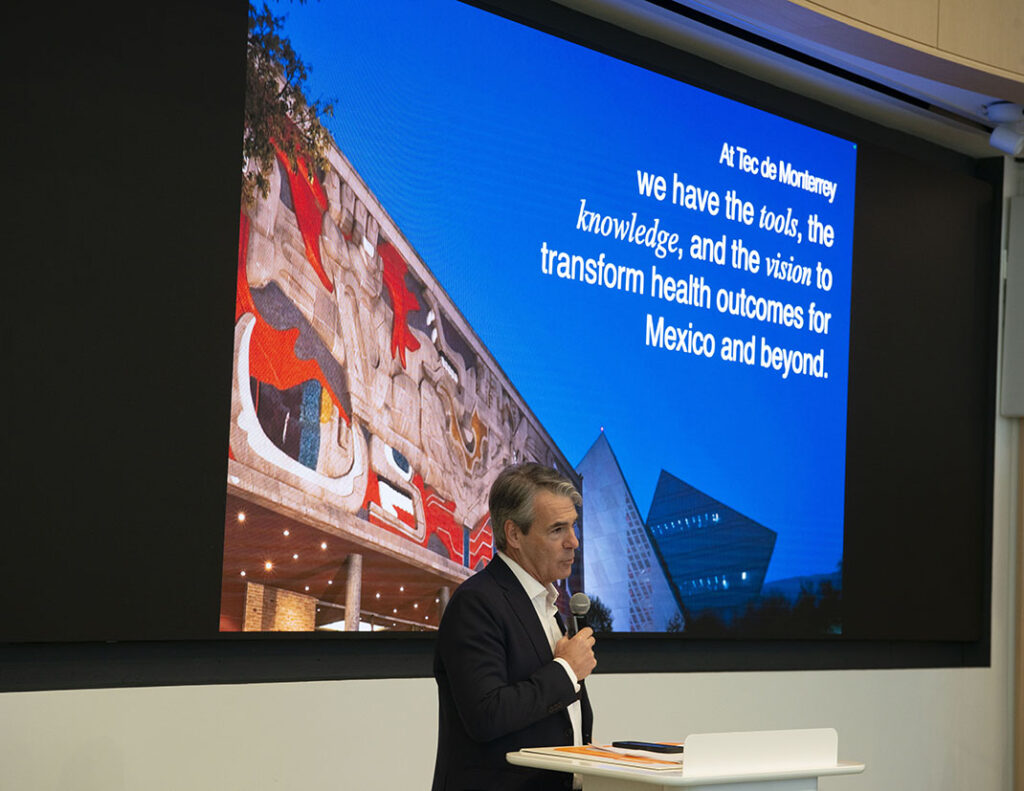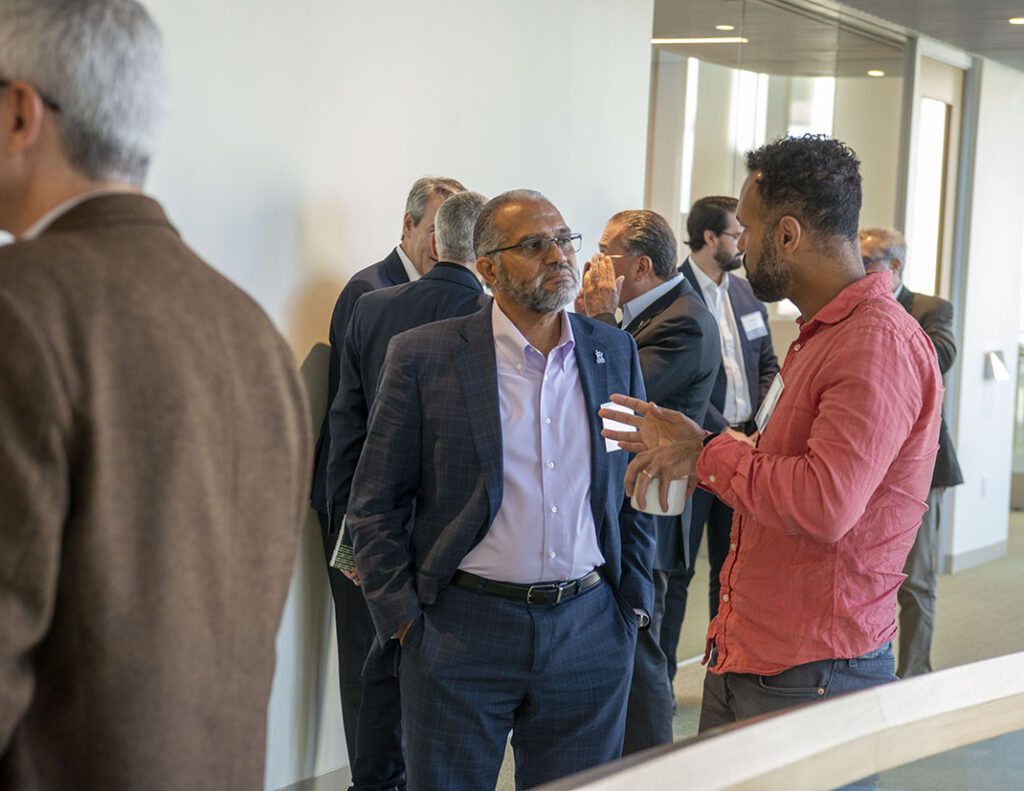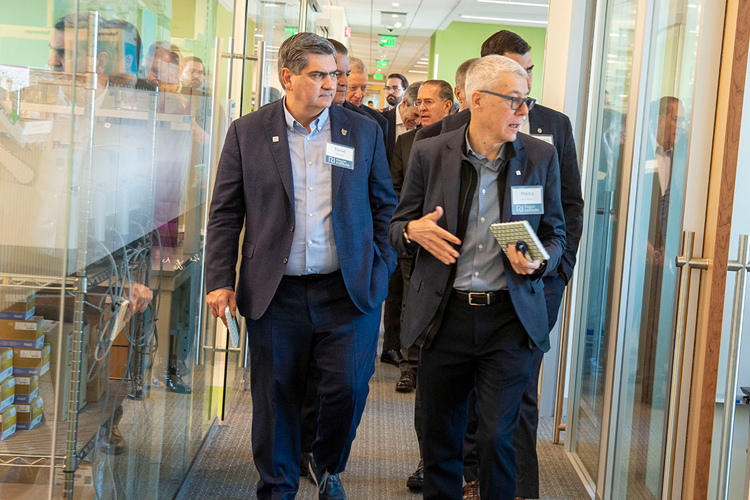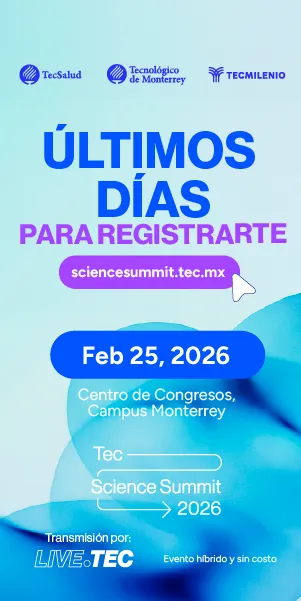BOSTON, Massachusetts.- Understanding the complexity of how the human immune system works could be the key to eradicating the diseases that affect us the most, preventing future pandemics and the emergence of new diseases, as well as reducing the rate of premature births.
The main objective of the Ragon Institute is to study this “innate army” –at the epidemiological, molecular and cellular level– to transform medical care globally. This research institute specialized in immunology comes from a collaboration between the Massachusetts Institute of Technology (MIT), Harvard University and Massachusetts General Hospital (Mass General).
Tecnológico de Monterrey and the Ragon Institute signed a collaboration agreement to develop shared doctoral studies, research and academic exchange programs and collaborative research projects, in order to expand cutting-edge research on the immune system to Latin America.
“There are still many health challenges facing the Mexican, Hispanic and global population,” said David Garza, Executive Director of Tec de Monterrey, during the signing of the agreement, an event that took place at the Ragon Institute in Boston, Massachusetts.
“It is fabulous to have this collaboration that will help us increase our capabilities and contribute to the solution of many of these challenges.”
This alliance plants a seed of hope so that, in the future, Latin American populations can also benefit from the most innovative advances in immunology.
“Our motto is: collaborate, research, cure,” said Bruce D. Walker, director of the Ragon Institute. “Collaboration is really the heart of what we’re trying to do.”
For his part, Guillermo Torre, rector of TecSalud, expressed his enthusiasm about this new collaboration. “I believe that this relationship is going to be a transformational event,” he said.

Ragon Institute: Studying the Immune System From All the Angles
In its early days, the Ragon Institute emerged as an interdisciplinary space for a group of engineers, immunologists, physicians, computational biologists and immunogeneticists to study the human immunodeficiency virus (HIV) and acquired immunodeficiency syndrome (AIDS) from an immunological perspective, with the aim of eradicating it.
Today, its research focuses on six main areas: HIV, global infectious diseases, emerging infectious diseases, vaccine development, clinical research, as well as basic and applied immunology.
In response to the Covid-19 pandemic, they also opened an area dedicated to understanding the SARS-CoV-2 virus and all of its variants.
“Immunology is a basic science that is transversal, it helps us understand how our body defends itself from infectious diseases, how a mother does not reject her baby or how our own body attacks cancer,” said Torre regarding the importance of the research that is done at the Ragon Institute.
Currently, among many of their research results is an HIV vaccine that is expected to move into human clinical trials next year.
They are also studying a group of people –known as elite controllers– who have been infected with HIV but can maintain low viral loads without taking antiretroviral drugs.
They are also working on developing more efficient vaccines against tuberculosis, malaria and influenza.
Another group of researchers is studying bats to understand their importance as vectors of infectious diseases and –potentially– prevent the next pandemic.
On the other hand, they are also conducting research to develop efficient therapies that can help the immune system of people fight different types of cancer.
Thus, the Institute seeks to harness the immune system to be able to fight many diseases and prevent new ones from emerging.

A Mutually Beneficial Collaboration
As for the new collaboration, this is the first that the Ragon Institute has established with a Latin American country. “We have been very selective,” said Facundo Batista, Associate Director and Scientific Director of the Ragon Institute.
Batista is originally from Argentina, so for him, it is especially exciting that both institutions are now connected.
According to him, countries like the United States offer high-level training for future scientists who are prepared to solve the greatest problems of humanity, so having the possibility for Mexican and Latin American students to train at the Ragon Institute is something that will bear many fruits.
“An important mission will be to expose our undergraduate and graduate students [to the Ragon Institute], not only those who study medicine, but also engineering, public policy,” said Torre.
Through the collaboration, it is expected that both institutions will have a mutual benefit that will enhance the scope of the most innovative advances in immunology.
Tec de Monterrey will be able to serve as a strategic partner for the Ragon Institute to do scientific nearshoring, using Mexico’s capabilities to conduct phase one and two clinical trials at lower costs than in the United States, without sacrificing quality and efficiency.
“Great projects start in a simple way,” said Garza. “We believe that we will be able to contribute not only to health in Mexico, but to global health.”
Were you interested in this story? Do you want to publish it? Contact our content editor to learn more marianaleonm@tec.mx
















